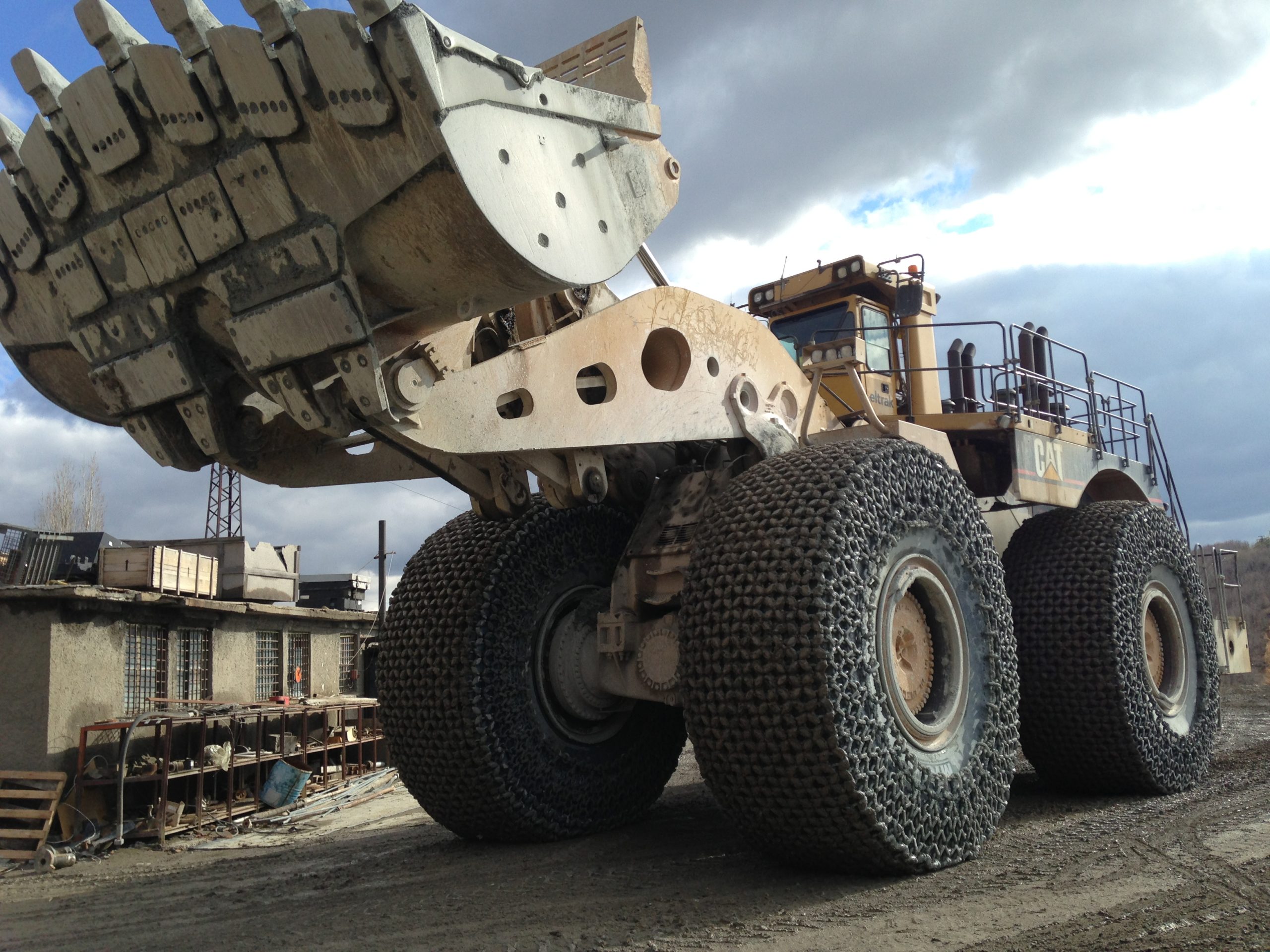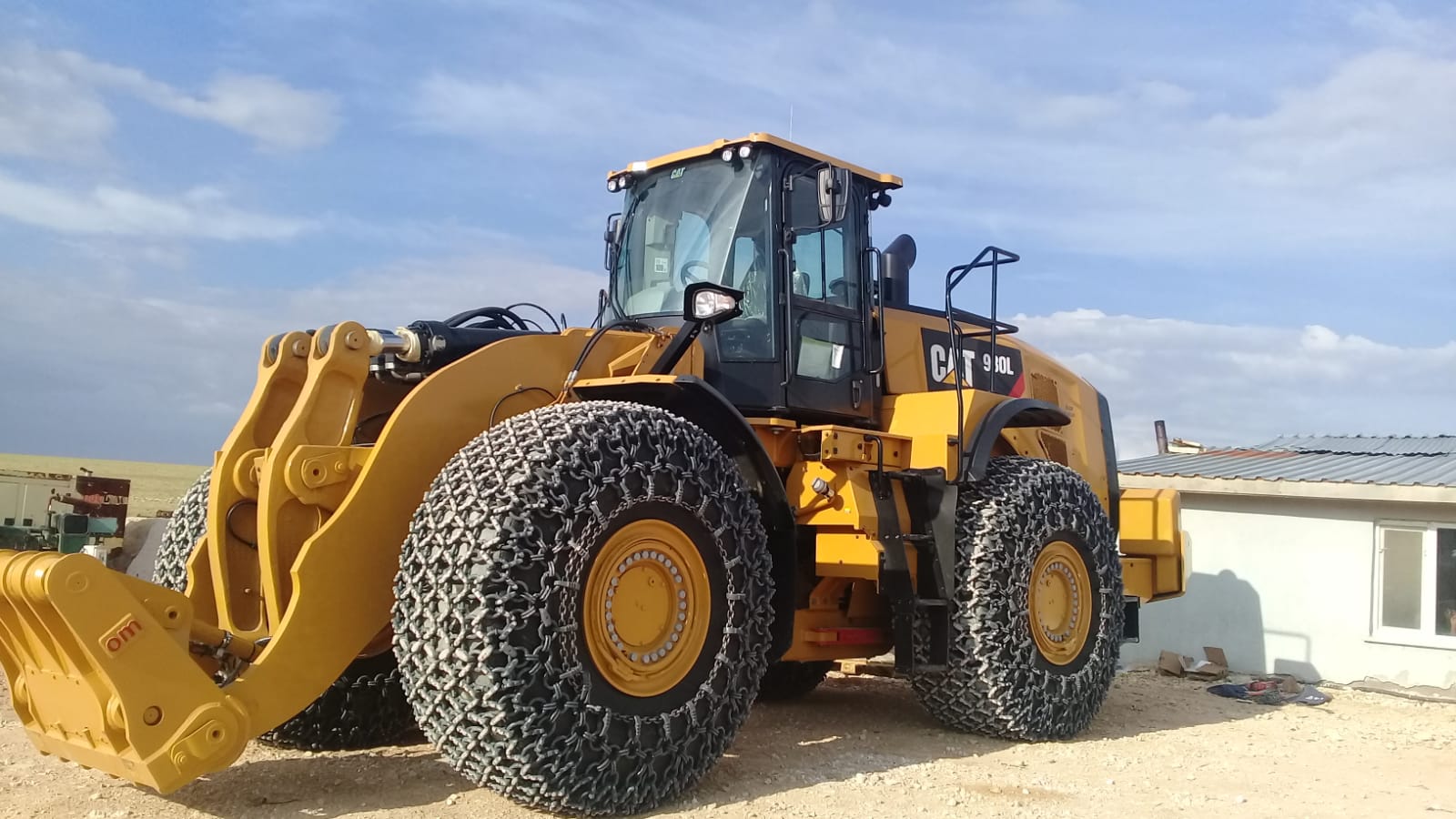As the primary component connecting equipment to the ground, OTR tires are essential to a vehicle’s efficiency, safety, and mobility. The performance specifications and environmental factors for large machinery have been revised by tire technology looking for improvement in fuel efficiency, reduced emissions, and increased durability. By using OTR tires that meet these updated specifications as useful accessories like tyre protection chains, companies can not only enhance their environmental sustainability but also improve the overall performance and longevity of their vehicles.
We are going to explore a crucial aspect in the world of heavy machinery – “The Environmental Impact of Tire Protection Chains for OTR Tires.” We explore the function of tire protection chains, looking at how these creative approaches support sustainable practices and environmental responsibility while also extending the life of off-road (OTR) tires. We find a balance between the harsh demands of industrial operations and the preservation of our planet as we peel back the layers of this environmental impact.

Tire Protection Chains provide a formidable defense against the wear and tear experienced by OTR tires in difficult terrain.
How Tire Protection Chains, Protect Our Environment?
Innovations that meet industrial needs while maintaining ecological balance are critical. At a time when environmental sustainability is one of the world’s top concerns.
This article explores Tire Protection Chains (TPCs) for Off-the-Road (OTR) tires and their effects on the environment. Unfortunately, tyres are high-carbon products. Therefore, we investigate the role of TPCs in promoting a more environmentally conscious approach within industries reliant on heavy machinery. By examining how they contribute to tire life, waste reduction, and overall efficiency.
Tire Protection Chains Increase Tire Life and Reducing Waste
Improve Durability
Tire Protection Chains provide a formidable defense against the wear and tear experienced by OTR tires in difficult terrain. The chains act as a shield, absorbing the impact of abrasive materials and sharp objects, extending tire life significantly. As a result, the need for frequent tyre replacements is reduced, lowering the overall volume of tire waste generated by industrial operations.
Reducing the Environmental Impact of Tire Disposal
Tire disposal is a significant environmental challenge due to its inability to biodegrade. Recycling the tires is an expensive and difficult process. The use of TPC industries can help reduce tire disposal. As a result, the environmental impact of tire waste by using TPCs to extend the life of off-road tires.
Tire Protection Chains Improve Fuel Efficiency and Carbon Footprint
Reduced Rolling Resistance
Tire Protection Chains help reduce rolling resistance in off-road tires by adding traction and stability. Tire protection chains reduce tire consumption by preventing punctures and premature wear. For heavy machinery, this reduction in resistance means increased fuel economy. The reduction of fuel consumption leads to a corresponding decrease in greenhouse gas emissions, thereby improving industrial operations’ carbon footprint.
Lower Carbon Emissions Through Operational Efficiency
Efficient operations, facilitated by the enhanced traction and stability offered by TPCs, result in machinery that operates more smoothly. As machinery operates more smoothly, less energy and power are required, which lowers carbon emissions. The larger objective of reducing the carbon footprint in industrial settings is in line with the positive cycle that TPC use creates.
Increased Tire Re-Treatability
Protecting the carcass of the tires increases the re-treatability of the tyres up to three times. This increased re-treatability not only extends the lifespan of the tires but also reduces the demand for new tire production, further contributing to a more sustainable and eco-friendly approach in the industrial sector.
Additionally, by protecting the carcass of the tires, chains also help prevent punctures and damage, minimizing waste and reducing the environmental impact associated with tire disposal.
Sustainable Resource Management
Conservation of Raw Materials
Off-the-road (OTR) tires are made of mainly: Natural Rubber, Synthetic Polymers, Steel and Antioxidant and Antiozonant curing materials. By extending the lifespan of OTR tires through the use of TPCs, the demand for new tires decreases. Tyre protection chains, make the OTR tires reusable.
This, in turn, contributes to the conservation of raw materials, aligning with sustainable resource management practices.
Long-Term Economic Benefits and Resource Efficiency
Tyre protection chains, lengthen the life of tires and keep them in operation for longer periods. By reducing the need for tire replacements, industries can save on expenses related to purchasing new tires and disposing of old ones. Additionally, the use of TPCs promotes resource efficiency by minimizing the consumption of raw materials required for tire production.
This not only benefits the industries financially but also helps conserve valuable resources for future generations. The preservation of existing resources through extended tire life ensures a more sustainable utilization of materials, promoting environmental responsibility within industrial practices.
Tire Protection Chains Enhancing Workplace Safety and Environmental Responsibility
Prevention of Accidents and Environmental Damage
Accidents and environmental harm can arise from tire blowouts and failures. Utilizing TPCs reduces the likelihood of tire-related incidents by acting as a preventive measure. In addition to guaranteeing worker safety, this also averts possible hazardous material spills or leaks, further in line with environmental preservation objectives.
Promoting an Environmentally Conscious Culture
The use of TPCs promotes an eco-aware culture in industrial environments. As industries prioritize solutions that enhance operational efficiency and contribute to environmental sustainability, a shift towards more responsible practices takes root. To encourage a sense of commitment and dedication to the environment, a cultural shift is essential.
This cultural shift involves educating employees about the importance of environmental preservation and providing training on the proper handling and disposal of hazardous materials. Additionally, implementing rewards and recognition programs for environmentally friendly initiatives can help foster a sense of pride and motivation among employees to actively participate in eco-conscious practices.

Protecting the carcass of the tires increases the re-treatability of the tyres up to three times.
In conclusion, Tire Protection Chains for OTR tires play a crucial role in protecting the environment within industrial settings. They help minimize tire wear and tear, reducing the need for frequent tire replacements and ultimately reducing waste. This not only saves costs for businesses but also reduces the overall carbon footprint of the industry.
By extending the lifespan of tires, TPCs also contribute to conserving natural resources, as fewer raw materials are needed for tire production. Additionally, the use of TPCs can lead to improved safety in industrial settings by reducing the risk of tire blowouts and accidents caused by worn-out tires. Adopting TPCs is becoming more than just a sensible decision—it’s also a responsible move towards a more environmentally conscious and sustainable future, as industries work to balance operational needs with environmental obligations.


